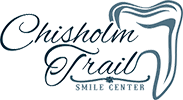
Although it can be a little bit alarming when your child loses their first tooth, it can also be a joyous occasion since it usually means a trip from the tooth fairy is in order. However, when your 16-year old son loses a tooth, it is cause for concern and should be considered a serious dental emergency.
Dental emergencies are certain to happen, especially if your child plays contact sports or rough plays. They can even happen during the simplest activity in the calmest environment. As soon as a tooth is damaged or knocked out, there are certain steps that should be immediately taken. Being well prepared for dental emergencies can reduce anxiety and protect your child’s oral health. Below are five tips for what to do during a dental emergency.
Locate the Missing Tooth
In cases where the permanent tooth is broken, locate all the missing pieces and place them in a container of saltwater solution. Milk or saliva will also do if saltwater is not easily accessible. After gathering the pieces, rinse the mouth with warm saltwater. If there is bleeding, you can apply gauze and light pressure to slow the bleeding. Avoid touching the damaged tooth. If the tooth is knocked out, pick it up by the crown (avoid touching the roots) and rinse it with lukewarm water. Try to gently reinsert it into the socket and lightly bite down. If you are unable to reinsert, place the tooth in a container of saltwater, milk, or saliva.
Call the Dentist
Because dental emergencies tend to occur after hours, it’s important to have a dentist on hand that is easily accessible so that urgent care can be provided. When a tooth is damaged or knocked out, care should be administered immediately. Delaying your office visit could prevent the tooth from being salvaged.
Apply Ice to the Face
Pain and swelling are normal side effects of a facial injury that resulted in a cracked or knocked out tooth. Icing the cheek or outer jaw can help reduce these side effects and prevent bruising from occurring. Be sure and apply the ice pack or cool compress in 20-minute intervals. Doing so can also help minimize any discomfort.
Take a Pain Reliever
In addition to icing the area, take an over-the-counter pain reliever to reduce pain and inflammation. Acceptable pain relievers include ibuprofen, acetaminophen, or naproxen. Be sure and read instructions carefully on the appropriate dosages for children and adults.
Prepare a First Aid Kid
If your child participates in confrontational physical activities or plays sports, such as football, basketball, karate, or baseball, where equipment or an extremity can come in contact with the face, it may be in your best interest to prepare a tooth first aid kid that can be easily transported to each game and practice session. This kit should include pain relievers, an ice pack, saltwater solution, and container to hold the damaged pieces or lost tooth. Having your dentist’s number programmed into your phone will also ensure quick access, should an emergency arise.
Call Today
Dr. Matthew Bridges can quickly and effectively handle dental emergencies at our Duncan, OK office. If you or anyone in your family is currently experiencing a dental emergency, please contact us today online or by calling (580) 255-4880.







